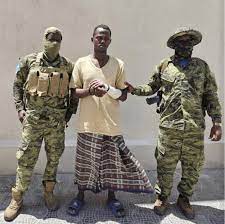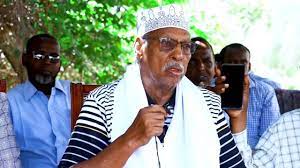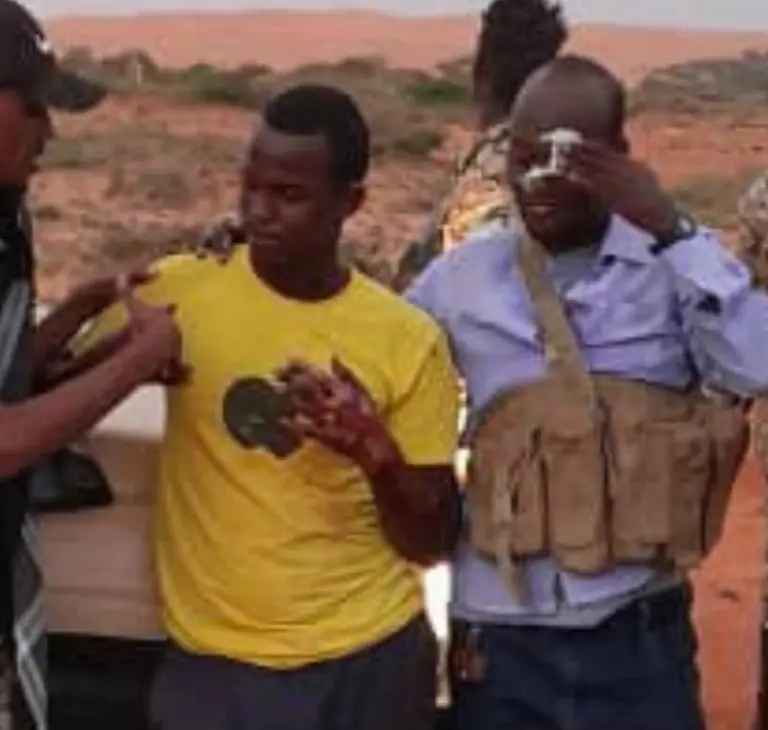Version française ci-dessous
In a newreportlaunched at the 39th session of the UN Human Rights Council, DefendDefenders (the East and Horn of Africa Human Rights Defenders Project) and the Burundian Coalition of Human Rights Defenders (CBDDH) examine the situation of exiled Burundian human rights defenders (HRDs). More than three years after the eruption of Burundi's human rights crisis, "Between Despair and Resilience: Burundian human rights defenders in protracted exile in Uganda and Rwanda" highlights the achievements of HRDs, and their professional, security, and socio-economic challenges in order to formulate concrete recommendations for the enhancement of their human rights work.
President Pierre Nkurunziza's decision to run for a third presidential term in April 2015 was accompanied by a brutal crackdown on civil society, which has driven a large number of HRDs into exile. Having reunited in Rwanda and Uganda, exiled HRDs tirelessly work to expose the violations that continue to take place in Burundi.
"It is exiled HRDs that are the eyes and ears of the international community, and the voice of the victims," said Hassan Shire, Executive Director of DefendDefenders. "This is why it is crucial to explore ways to support their invaluable documentation and advocacy work, which allows the world to know what really happens on the ground."
"Between Despair and Resilience" shows that exiled HRDs continue to face sizeable challenges, such as receiving funding without an official legal framework for the operation of their civil society organisations in host countries, verifying information without access to primary sources, and travelling as refugees for advocacy missions and meetings. In addition, after fleeing Burundi because of direct threats, more than 70 percent of the HRDs interviewed for this study continue to fear attacks by theImbonerakureyouth militia and agents of the Service National de Renseignement(SNR).
|
Furthermore, as HRDs continue to struggle to integrate economically in their host countries, the report highlights a gap between emergency assistance and self-sufficiency, calling for improved coordination between protection, humanitarian, and refugee organisations in order to ensure a long-term impact on the lives of HRDs who face protracted exile. Indeed, the uncertainty of protracted exile can foster feelings of despair and affect HRDs’ psychological well-being.
"As an HRD in exile, I feel it is my obligation to go back to Burundi when the situation improves” said Vital Nshimirimana, Chairperson of CBBDH. "If we - HRDs in exile - keep up our engagement, we will be able to build a strong human rights movement once we return to our country, strengthened by our experiences and our resilience.”
Based on the testimonies of more than 100 Burundian HRDs, the report paints a picture of hope and resilience, but also highlights the risk of despair and further disintegration of Burundi’s once robust civil society, calling for renewed support for the vital work done by Burundian HRDs to ensure that human rights abuses in the country are exposed and human rights values are upheld.
"Between Despair and Resilience”builds on previous work published by DefendDefenders in 2015and 2016,and outlines additional support mechanisms for exiled HRDs. It also complements "Headlong Rush,” a recent DefendDefenders reporton Burundi’s appalling behaviour as a member of the Human Rights Council.
|
|
|
|
Dans son nouveau rapport, lancé à la 39ème session du Conseil des droits de l’homme des Nations Unies, DefendDefenders (the East and Horn of Africa Human Rights Defenders Project) et la Coalition Burundaise des Défenseurs des Droits de l’Homme (CBDDH) analysent la situation des défenseurs des droits humains (DDH) burundais en exil. Plus de trois ans après l’éclatement de la crise au Burundi, «Between Despair and Resilience: Burundian human rights defenders in protracted exile in Uganda and Rwanda», ou en français «Entre Désespoir et Résilience: les défenseurs des droits humains burundais en exil en Ouganda et au Rwanda», met en évidence les réussites des DDH et leurs difficultés professionnelles, sécuritaires et socio-économiques, afin de formuler des recommandations concrètes pour l’amélioration de leur travail dans les droits humains.
La décision du Président Pierre Nkurunziza de briguer un troisième mandat en avril 2015 s’est accompagnée d’une répression brutale, qui a conduit un grand nombre de DDH à l’exil. S’étant rassemblés au Rwanda et en Ouganda, les DDH en exil travaillent sans relâche pour mettre en lumière les violations qui continuent d’être commises au Burundi.
«Ce sont les DDH en exil qui sont les yeux et les oreilles de la communauté internationale, ainsi que la voix des victimes», a déclaré Hassan Shire, directeur exécutif de DefendDefenders. «C’est pourquoi il est crucial d’explorer les moyens de soutenir leur précieux travail de documentation et de plaidoyer, qui permet au monde de savoir ce qu’il se passe réellement au Burundi».
«Between Despair and Resilience» montre que les DDH en exil continuent à éprouver des difficultés majeures, telles que l’obtention de financements sans cadre juridique pour les activités de leurs organisations basées dans les pays d’accueil, la vérification d’information sans l’accès direct aux sources primaires, ou encore les déplacements à l’étranger pour la participation à des missions de plaidoyer et des réunions. De plus, après avoir fui le Burundi, plus de 70% des DDH interrogés pour cette enquête vivent toujours dans la peur d’attaques par la milice de jeunesImbonerakureet les agents du Service National de Renseignement (SNR).
En outre, alors que les DDH continuent à lutter pour s’intégrer économiquement dans les pays d’accueil, ce rapport met en évidence un fossé entre l’assistance d’urgence et l’autosuffisance, appelant à une amélioration de la coordination entre organisations humanitaires, de protection et d’aide aux réfugiés, afin de garantir un impact de long terme sur la vie des DDH qui font face à l’exil prolongé. En effet, l’incertitude liée à l’exil prolongé peut entretenir des sentiments de désespoir et affecter le bien-être psychologique des DDH.
«En tant que DDH en exil, je ressens l’obligation de retourner au Burundi quand la situation s’améliorera», a déclaré Vital Nshimirimana, président de la CBDDH. «Si nous – les DDH en exil – maintenons notre engagement, une fois de retour dans notre pays, nous serons en mesure de construire un mouvement des droits humains robuste, renforcé par nos expériences et notre résilience».
Sur la base des témoignages de plus de 100 DDH burundais, le rapport dépeint une image d’espoir et de résilience, mais met aussi en lumière le risque de désespoir et d’une plus grande désintégration de la société civile burundaise, qui fut si robuste par le passé. Ceci appelle à un soutien renouvelé pour le travail crucial accompli par les DDH burundais, afin de garantir que les atteintes aux droits humains soient rendues publiques et que les valeurs des droits humains soient respectées.
«Between Despair and Resilience»s’appuie sur le travail précédemment publié par DefendDefenders en 2015et 2016et donne un aperçu des mécanismes de soutien supplémentaires pour les DDH en exil. Ce rapport complète également «Fuite en avant», un récent rapportde DefendDefenders sur le comportement consternant du Burundi en tant que membre du Conseil des droits de l’homme. |
|
|
|
| For more information, please contact |
|
Hassan Shire
Executive Director, the East and Horn of Africa Human Rights Defenders Project
on executive@defenddefenders.org or +256 772 753 753
(English and Somali) |
|
Estella Kabachwezi
Senior Advocacy and Research Officer, the East and Horn of Africa Human Rights Defenders Project
on advocacy@defenddefenders.org or +256 782 360 460
(English)
|
|
Nicolas Agostini
Representative to the United Nations (Geneva), the East and Horn of Africa Human Rights Defenders Project
on geneva@defenddefenders.org or +41 798 134 991
(English and French) |
|
|
|
East and Horn of Africa Human Rights Defenders Project
DefendDefenders seeks to strengthen the work of human rights defenders throughout the region by reducing their vulnerability to the risk of persecution and by enhancing their capacity to effectively defend human rights.
DefendDefenders focuses its work on Burundi, Djibouti, Eritrea, Ethiopia, Kenya, Rwanda, Somalia (together with Somaliland), South Sudan, Sudan, Tanzania and Uganda. Visit us atwww.defenddefenders.org |
|




 0
0 














Between Despair and Resilience: Burundian human rights defenders in protracted exile in Uganda and Rwanda
Version française ci-dessous In a newreportlaunched at the 39th session of the UN Human Rights Council, DefendDefenders (the East and Horn of Africa Human Rights Defenders Project) and the Burundian Coalition of Human Rights Defenders (CBDD